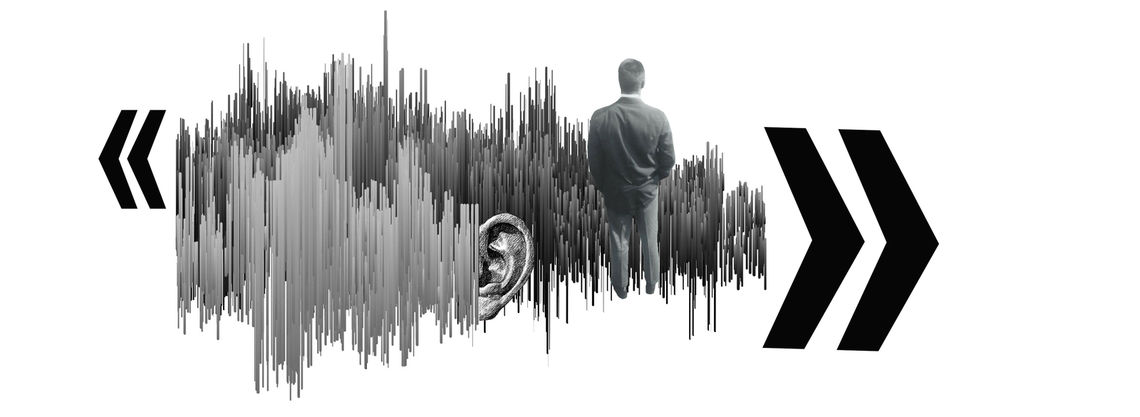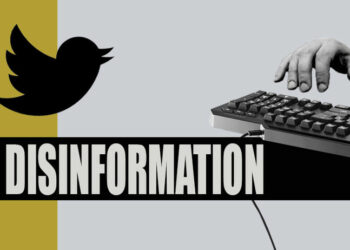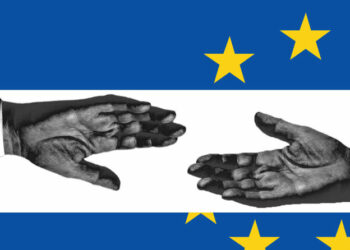
In recent months, the criminalization of hate speech was at the forefront of political and legislative debate in Armenia. According to observers of the 2018 Armenian parliamentary election, hate speech was prevalent during the early election campaign. In its final report, the Independent Observer election observation mission stated that 172 cases of hate speech were registered during the campaign period. Of course, the actual number of cases can be expected to be much higher, especially in active discussions on social networks, where not all instances are reported. There was a fierce debate in parliament about the adoption of legislative measures against the dissemination of hate speech. The issue is quite complex and, naturally, there are divergent opinions on what areas of speech should be subject to official sanction.
Recently, the Armenian Parliament voted 97-14 in favor of Bill G-437, amending the Criminal Code to outlaw public calls for violence against identifiable groups. Offences are punishable by a fine of up to 150,000 AMD (approx. $300 US) or even up to one year in prison. If the offender holds an official position or coordinates with a group, the maximum sentence increases to 300,000 AMD or three years in prison. The bill was supported by the My Step Alliance and the Bright Armenia Party (BAP). All MPs voting against were members of the Prosperous Armenia Party (PAP).
According to the Justification section of the law, everyone has the right to freedom of expression but that right is not absolute. In practice, if speech is used to trample the rights of others (including the right to life), freedom of speech can be curtailed to protect the rights and dignity of others in society. Both international documents and laws in other countries provide legislative opportunities to restrict freedom of speech, in instances where it devolves into “hate speech.” Armenia’s law was prepared based on the experience of the EU and its member countries.
The European Experience
After two world wars, during which hate speech led to unfathomable atrocities, international organizations tackled the issue and prepared the legal background for countries to adopt similar national laws. In 1966, the UN adopted the International Covenant on Civil and Political Rights, where it is stated: “any appeal to national, racial, or religious hatred that constitutes incitement to discrimination, hostility, or violence must be forbidden by law.”
Though the EU has only recently enacted measures against hate speech, especially in the digital realm, the Council of Europe has been dealing with the phenomena for decades and expresses its stance not only through legislative measures but also with the recommendations of the European Court of Human Rights (ECHR), the guiding document for which is the European Convention on Human Rights. Article 10 of the Convention protects freedom of expression “including the freedom to hold opinions and to receive and impart information and ideas without interference by public authority and regardless of frontiers.” At the same time, Article 17 prohibits “any act aimed at the destruction of any of the rights and freedoms set forth herein or at their limitation to a greater extent than is provided for in the Convention.”
From that perspective, the case of Delfi AS vs. Estonia is especially important. Delfi is a major news portal in Estonia. They allow comments on their site. One story led to several comments being posted, which targeted an individual that the Court referred to as “L.” Delfi did remove the comments when contacted by L but L requested monetary damages regardless, which Delfi refused to pay under the defense that they were simply a platform and not the originator of the comments. The courts did require Delfi to pay damages and Delfi lost its appeal to the ECHR.
According to the judgment, Estonia did not breach Article 10 of the Convention. The Court acknowledged “while… important benefits can be derived from the Internet in the exercise of freedom of expression, [the Court] is also mindful that liability for defamatory or other types of unlawful speech must, in principle, be retained and constitute an effective remedy for violations of personality rights.”
With the rapid growth of information technologies and ubiquitous use of social media, there is an urgency to address the issue of hate speech in the online world. In 2016, the European Commission, together with Facebook, Twitter, YouTube and Microsoft, adopted a “Code of Conduct on Countering Illegal Hate Speech Online.” The companies accepted the responsibility to delete hateful contents within 24 hours of it being reported.
Nonetheless, the document was met with severe criticism. Here, one can see the similarities between the hate speech criminalization discourse in Armenia and the effort to combat against illegal hate speech in the EU.
However, the Code of Conduct was not enthusiastically accepted by civil society. First of all, the process of adopting the Code was criticized. According to a paper, prepared by the Trans-Atlantic working group, the Commission shared the text with the member states only a few days before the signing, thus violating the participatory process, depriving the national authorities of the ability to familiarize themselves with the document properly and prepare comments.
Other stakeholders, such as civil society representatives, proclaimed that they were excluded from the negotiations and not provided with sufficient information. The leading digital rights organizations Access Now and European Digital Rights (EDRi) demonstratively left the room of discussion as a sign of boycott against the insufficient level of transparency in the negotiation process.
Another major issue was the legal basis of the Code of Conduct. It is important to mention that there is no universally accepted definition of hate speech, which cascades into ambiguity surrounding the legal documents that hope to address it. The legal basis for the Code of Conduct is grounded in the EU’s 2008 framework decision on racism and xenophobia and the directive on electronic commerce. The EU’s decisions are binding in their entirety and, if specified, only binding for those to whom it is addressed. EU directives are binding on member states, but they are free to choose the form and methods of implementation. Directives come with a time-limit for transposition into national law and are frequently used for harmonization. In a nutshell, the EU provides the guidelines and the member states are free to choose the methods and forms of their implementation.
The framework decision is quite strict and prescribes criminalization of incitement to hatred. Another important aspect of the document is liability for the denial of historic events or the expression of opinions about historical facts, which is at odds with the International Covenant on Civil and Political Rights. Another arguable aspect of the decision is the immediate use of custodial penalties without requiring lower sanctions. Considering the historical background of hate speech in Europe, the EU tries to be as strict as possible to prevent the repetition of history.
The EU E-Commerce Directive was the subject of criticism for calling on member states to “shield intermediaries from liability for illegal third-party content where the intermediary does not have actual knowledge of illegal activity or information and, upon obtaining that knowledge, acts expeditiously to remove or disable access to the content at issue.” It also prohibits member states from imposing general obligations on intermediaries to monitor activity on their services. Proponents of freedom of expression criticized the document for the absence of basic procedural fairness and legal uncertainty surrounding intermediary liability.
In 2017, the European Parliament asked the Commission to “look into the feasibility of establishing a common legal definition of hate speech in the EU.” The 1997 Recommendation of the Council of Europe Committee of Ministers on Hate Speech was used as a base, which considered that hate speech “is to be understood as covering all forms of expression which spread, incite, promote or justify racial hatred, xenophobia, anti-Semitism or other forms of hatred based on intolerance, including intolerant expression by aggressive nationalism and ethnocentrism, discrimination and hostility against minorities, migrants and people of immigrant origin.” The main problem with the document is the broad definition of hate speech, without including all forms of hatred such as homophobia.
Despite all these controversial points, the Code of Conduct is in force and, according to the Commission’s 2019 report, the original group of companies, joined also by Instagram and Google, removed approximately 72% of reported content.
A Delicate Balance
There is a worldwide dilemma to find the delicate balance between freedom of speech and condemnation of hate speech. According to the Armenian government’s review of international experience, many countries around the world have criminalized various forms of violence:
1. Calls against the constitutional order of the state (Bulgaria, Switzerland, Israel, Slovenia, Latvia, Germany, Serbia, France, Ukraine, Belarus, Russia)
2. Calls for terrorist or extremist activities (Israel, Slovakia, Latvia, Estonia, Czech Republic, Serbia, Russia)
3. Calls for any type of crime (Bulgaria, Poland, the Netherlands, Germany, the Czech Republic)
4. Calls for incitement to violence among different groups (France, Ukraine, Bulgaria, Poland, Moldova)
For instance, in France, 12 pro-Palestinian activists were fined $14,500 for their activities calling for the boycott of Israeli products. The Boycott, Divestment and Santions (BDS) movement is illegal in France under a law against “provoking discrimination, hatred or violence toward a person or group of people on grounds of their origin, their belonging or their not belonging to an ethnic group, a nation, a race or a certain religion.”
Unfortunately, in the digital age, controlling hate speech has become a major challenge to the legal systems of democracies that also want to maintain broad freedom of expression. Authoritarian states point to hate speech laws in democratic countries as justification for their own crackdowns on political opposition. In Armenia, where most hate speech is spread by voices that are also critical of the government, it will be important to use tact and restraint in enforcing the new law.
also read
It Has To Be Said: Infodemic or the Epidemic of Misinformation
Parallel to the coronavirus pandemic taking over the world, an infodemic is causing strain and impacting mental health. This week’s editorial, once again, looks at the role of every person inhabiting the earth.
Read moreFighting Fake News or Censoring Speech Online
Finding the proper tools to combat the spread of misinformation and fake news on social media networks has confounded many societies and governments. State-authorized action could threaten free speech.
Read morePost-Truth Armenia and the Media
The fake news phenomenon is not uniquely Armenian. It’s a global challenge, but when the stakes are so high following the Velvet Revolution, journalists need to rediscover their mission and have an honest discourse about their role in the state of the media landscape.
Read moreby the same author
The European Green Deal and Its Implications for Armenia
The European Green Deal is an ambitious plan to make Europe the first climate-neutral continent by 2050. Anna Barseghyan looks at the challenges and opportunities for green policy in Armenia.
Read moreThe Eastern Partnership: From Security to Resilience
The EU’s policy toward its neighbors has had several transformations, including a shift from a “one size fits all” approach to a “pick and choose” one. Anna Barseghyan explains.
Read more





